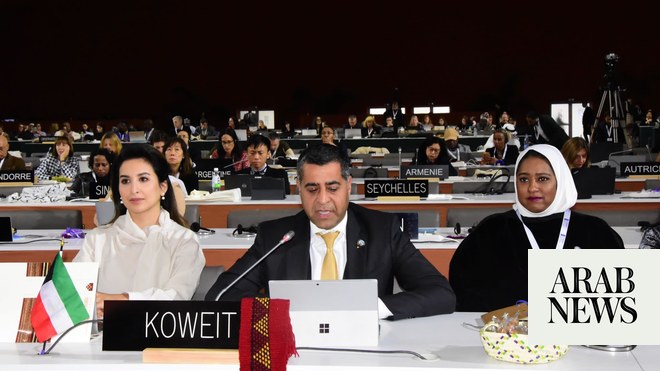
Prior to Iran’s 1979 revolution, Iranian-Israeli ties were normal. Afterward, however, Ayatollah Ruhollah Khomeini deemed the Palestinian issue more important than these ties, using Palestine as a strategic tool to infiltrate the Arab world. Since then, the Iranian regime’s voice has been projected across the Islamic world with fiery speeches opposing Zionism and, with it, heading an “Axis of Resistance” and rejecting any relations with Israel. Iran’s regime was appealing to some Arabs, who were attracted by slogans such as “Death to America” and “Death to Israel.” These slogans were promoted by Tehran tirelessly across different media platforms, and in speeches and sermons, as well as at regional and international forums.
Despite all this, however, in reality, Tehran’s private moves contradicted its public proclamations of eternal enmity against Israel. Only a few years after the 1979 revolution, the first scandal emerged in the form of the Iran-Contra affair. This was an Israeli-brokered arms deal providing weapons to Iran to support the regime in its war with Iraq. Ayatollah Hussein-Ali Montazeri, who was then Khomeini’s deputy, opposed the deal, but the supreme leader insisted on proceeding with it and punished Montazeri, who was dismissed and placed under house arrest. In his memoirs, Montazeri provided details of the deal, the exchange of visits between the two “enemy states,” and the brokers who helped render it successful.
In recent years, scandals regarding covert Iranian-Israeli relations and cooperation have emerged one after another. In 2011, Israeli reports revealed that at least 200 Israeli firms had established commercial ties with Iranian businesses, all of which were tightly controlled by the regime. These ties included investing in the Iranian energy sector, whose revenues have been used by the regime to develop its nuclear program. According to a report in the Israeli newspaper Haaretz, the goods exported by Israel to Iran included farming equipment and items used in agricultural production, including organic fertilizers and hormones for producing milk and cereals.
In 2014, the semi-official Fars News Agency reported a statement by parliamentarian Mostafa Afzalifard, a spokesman for the “Article 90” committee, in which he accused 55 Iranian companies of having links with Israeli companies. The parliament called on Iran’s security and foreign ministries to investigate the matter.
Trade in Iranian oil during the sanctions period was another feature of the secret dealings between Iran and Israel. There were also reports that an Israeli transport company was selling an oil tanker belonging to the Israeli company Ofer Brothers Group to Iran.
When Hassan Rouhani came to power, an anti-Israel exhibition and conference were prepared to mark the event in Tehran. Before the opening, however, orders were issued to cancel this event and replace it with one hostile to Saudi Arabia.
Iran’s regime continues its exploitation of Arab hostility toward Israel by using the Palestinian issue as a Trojan horse to fulfill its own agenda
Dr. Mohammed Al-Sulami
Shortly afterward, Rouhani demanded that the words “Death to Israel” be removed from Iran’s ballistic missiles, the semi-official Mehr News Agency reported. Rouhani apparently sent a letter to Supreme Leader Ali Khamenei seeking his approval to remove the phrase.
Recently, Iran’s Foreign Minister Mohammed Javad Zarif, in a television interview with a Western media outlet, denied that there were any official Iranian statements calling for the “demise of Israel.”
In 2016, Russia Today exposed a high-profile scandal, confirming a report by the site Satellite Age — which specializes in monitoring the movement of satellites around the world and the television channels they help broadcast — that six Iranian religious channels directed at the Arab world were being broadcast from Israel.
The Russia Today report named these channels as Ahlulbayt TV, Alanwar TV, Fadak, Al-Hussein, Al Alamia TV, and Alghadeer TV, all of which, it stated, were broadcast via the Israeli satellite “Amos” through the RRsat company. Interestingly, Russia Today subsequently removed this report from its Arabic language website.
Iran’s regime continues its exploitation of Arab hostility toward Israel by using the Palestinian issue as a Trojan horse to fulfill its own agenda. It has no interest in resolving this conflict, which gives it leverage to continue meddling in the affairs of Arab countries. Meanwhile, Tel Aviv raises anti-Iranian slogans and amplifies its own power to distract Arabs’ attention from the region’s foremost issue: Palestine.
To conclude, according to a large part of Arab public opinion, Iranian-Israeli relations are a political game, with ongoing hostility between the two sides not really reflecting relations between Tehran and Tel Aviv. Some may argue that this attitude is influenced by conspiracy theories, but it has become very popular since the so-called “Arab Spring.” Such a way of thinking might be exaggerated but, at the same time, it can’t be totally ignored as it carries some element of truth, as supported by the evidence presented.
• Dr. Mohammed Al-Sulami is Head of the International Institute for Iranian Studies (Rasanah). Twitter: @mohalsulami
Disclaimer: Views expressed by writers in this section are their own and do not necessarily reflect Arab News" point-of-view












